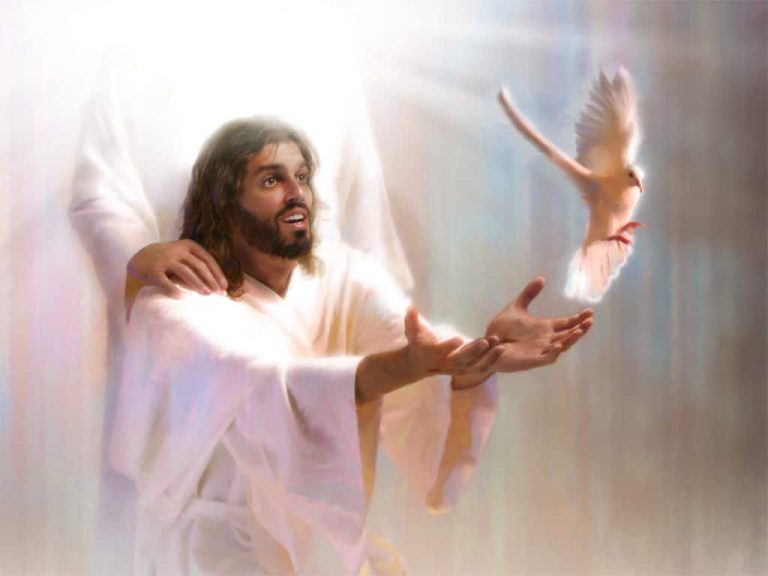Find out what the cross means to evangelicals and why it is so important
For every Christian the cross is the main symbol of their doctrine and, particularly, for the believers of the evangelical Christian Church it is of great relevance. In this post we will see what the cross means for evangelicals, as well as the use of the cross as an instrument of torture and redemption, implications and some interesting aspects of this sign.
the christian cross
It is the main symbol of Christianity, as it represents both the passion suffered by Christ, and the triumph that He achieved over death and sin for the salvation of all humanity.
It symbolizes, then, death, victory and salvation, but it also expresses closeness and surrender of Christ, as well as the infinite love of God.
By virtue of the different currents that have originated, the cross has taken different forms according to each of these Christian communities.
Thus, for example, in the Catholic Church it is characterized by a vertical line crossed at the top by a horizontal line. We also find that of the Orthodox Church represented with 8 arms.
Each one has its own symbolism, as it represents the culture, religion and historical events of each particular community.
However, as a common attribute of all these variants, we find that the cross is the sign that shows the genuine vocation of the faithful as children of God.
This is a sign loaded with a lot of symbology and strength for all devout people of Christianity and, especially, for the faithful belonging to the evangelical current.
What does the cross mean for evangelicals?
All evangelicals have confessed their faith in Jesus as their Lord and Savior and so profess it in each of the manifestations of their doctrine.
Within these manifestations, such as masses, cults, choirs, assemblies, personal testimonies and the various forms of thanksgiving, the cross represents the central sign of adoration of the Lord Jesus Christ.
For evangelicals, the cross means a constant reminder of the sacrifice that Jesus made for all sinners so that their sins might be forgiven and they might be saved.
On the cross the Son of God, innocent and free from all sin, paid for all the faults committed by man with the intention of redeeming him. By order of his Holy Father, Jesus made man gave his life, in ransom for many, who did not even know of his existence.
Many human beings, regardless of race or religion, received the benefits of that sacrifice, even without knowing it. Therefore, it is valid to assert that people do not properly value this wonderful sacrifice, through which Jesus became a bridge between God and men.
You may be interested in learning about praying to Jesus for work
With his death, he allowed humanity to have access to the door of eternity and, with it, to the presence of the Holy Father. Without that death on the cross this would not have been possible at all.
Such is the importance that has been given to the symbol of the cross in the evangelical faith that has passed through generations and humanity has recognized it for more than 2000 years as a symbol.
From that moment of his crucifixion, Christ changed the meaning of the Roman cross to that of the Cross of Christ.
However, it should be noted that for evangelicals, Jesus is not represented on the cross, because, as everyone knows, when he was resurrected and ascended to heaven, Christ sat at the right hand of God, to accompany him in his kingdom, so both is no longer found on the cross.
That is why in the Evangelical Church the cross is presented, used and spoken of without the figure of Christ, since they refer to a living, resurrected Jesus Christ, who is in the Kingdom of God, but is also among the people. , with the needy, with the one who invokes him.
For evangelicals, Jesus is always ready to listen to the prayers raised to him, as an omnipresent being, to help his human brothers through his love.
Hence, it is pointed out that one must be forever grateful for what Christ lived on the cross, because thanks to Him and what happened on it, it gave rise to human beings being redeemed before the Creator, accepted again as his children. , as well as having provided hope, especially to those who have a true belief.
instrument of torture
As we know, death on the cross was a common practice carried out in many places in ancient times to punish wrongdoers for their crimes. It was an instrument of torture and punishment for all those who, guilty or not, were tried and sentenced to such a painful and slow death.
Normally, the victim was expected to suffer a slow, painful and public death, as a way of warning people not to commit similar crimes.
It is a method that is still used in some areas such as Saudi Arabia, the United Arab Emirates, North Sudan and by terrorist groups, as a method of torture.
In crucifixion the condemned is tied with ropes or nailed to two thick, large wooden sticks joined together, or between trees or on a wall. Usually the person is stripped naked and left there until his death.
It was widely used in Ancient Rome and in certain areas around the Mediterranean.The method varied considerably according to the place and the time where they were carried out.
It was applied by the Romans until the year 337, after the legalization of Christianity in the Roman Empire in 313 by order of Emperor Constantine, before it was declared the official religion of the empire.
As recounted in history texts, in many cases, before crucifying the accused, the Romans used to whip him (flagellate) and make him carry a wooden yoke (“patibulum”) during the journey to the place of execution. This patibulum was later used as a crosspiece for the cross.
According to the accounts of the Roman historian Tacitus, a particular site had been designated in Rome to carry out these executions, which was located on the outskirts of the Esquiline Gate.
However, the crucifixion of Christ, apart from the fact that it was carried out with the greatest derision, torture and mockery, was of immense value to Christians, since this death on the cross became the crucial moment of faith , because the prophecies anticipated centuries before were fulfilled.
It is known to all that Jesus died crucified as a common criminal and treated with the greatest cruelty and accepted everything for the love of the Father and to achieve the salvation of humanity. This fact is significant for the evangelical faithful.
The cross was constituted instead of pain and torment, until the moment of the resurrection of Jesus. This was such a great event that it transformed history and, moreover, the preaching of his passion and death became, rather, hope and salvation.
That is why for an evangelical, the cross is covered with many meanings on which to base their faith. So we have that it can mean:
- Sacrifice of Jesus for man, to achieve his salvation, as already noted.
- Forgiveness of man’s sins, even when he does not deserve it. Man obtains that forgiveness by the grace of God, but if he repents and wholeheartedly turns away from what is sinful.
- Love, which was definitively demonstrated by the fact that Jesus died out of love for all humanity.
- Power, because with death on the cross the strength of Christ in the face of adversity was demonstrated.
- New opportunity given to man to redeem himself before God and return to the path of the Lord, as well as a new opportunity to enjoy eternal life.
- Life of peace, if the firm conversion of heart to God is expressed, to love and serve Him and the neighbor.
- Reconciliation with God, who with love receives his repentant children of their sins.
In short, what the cross means for evangelicals is the triumph of love over evil, of hope over despair, and of good over evil.
instrument of redemption
We all know that, despite the disobedience and sin committed by human beings, from the very times of Adam and Eve, God the Father always loved his creatures, created in his image and likeness.
And such was that love that he sacrificed his own son on the cross for the redemption and salvation of man.
There are many meanings that evangelicals see in the cross, which cannot go unnoticed and is always present in the daily life of every good evangelical.
The man (Adam and Eve) was tempted by the evil one and contravened the expectation the Lord God had on humans that they could be obedient in what he ordered.
Due to the action of the devil, it did not happen as God planned and man committed sin and disobedience to the Supreme Being, even knowing that it was contrary to divine designs.
And, as we know, this meant that they were expelled from Paradise, that they had to start working to earn food with the sweat of their brows, that women had to give birth in pain, and that they could no longer enjoy any of the privileges that the Lord had bestowed upon them.
Learn more about the most powerful prayer in the world
Despite these punishments, humanity continued in its sinful action, ignoring the precepts of the Lord.
Hence, in his infinite mercy and for the love of his children, God took pity on human beings and sent his Only Begotten Son to redeem them and save them from hell and lead them to eternal life.
This, of course, adds even more meaning to what the cross constitutes for a believer in the evangelical Church, since it constitutes the symbol of redemption and salvation and the instrument through which human beings were reconciled with God.
It is in this meaning that the love of the evangelicals for Jesus is based and what He did out of love for his brothers, for everyone alike, for those who accept him and those who do not, too.
We must all remember that the Holy Father gave man free will so that he could act and decide for himself what he wanted to do.
However, we have already seen that it was not well used and he allowed himself to be enveloped by the devil’s tricks, leading him to disobey God, which long after caused Jesus to sacrifice himself on the cross, which is honored today, despite the ordeal that He suffered there.
So that special recognition is given to the cross for the fact that it happened on it, but not for the object itself. That fact brought back the Love of God to man, it also brought peace, faith, redemption and eternal life.
Implications of Jesus’ death on the cross
It is opportune to indicate here the implications that are attributed to the act of death on the cross. Let’s see:
- It is an event that transformed a painful event into a redemptive reference for the entire Christian world. From there they began to talk about the death that gives salvation. That is why it is considered the universal emblem of Christianity, especially for followers of evangelical doctrine, for whom the cross is the fundamental pillar of their faith.
- It reveals to everyone that the death on the cross of Jesus is not only an event in the history of the human being on earth, but that it is a fact that transcends humanity, since it shows us the infinite love of God to man, love difficult to understand by the human conscience and is above all, the reconciliation of children with God himself and, furthermore, it allows them, if there is authentic repentance, the power to reach eternal life.
- It generates a more intimate relationship between man and God, which derives from the salvation granted to humanity through the sacrifice of Jesus.
In this regard, it should be noted that in order to have access to that intimacy with God, it is important to comply with certain premises, which Christ Jesus expressed very well in his sermons. Let’s see some of them:
- Conversion. It is the inner change that must be experienced and demonstrated through concrete actions towards our fellow men. At this point it is important to realize everything that separates us from God and change it.
Also, we must identify what brings us closer to Him and strengthen it so that temptation does not control our lives and trust in the qualities that have been given to us. This is also a way of carrying the cross.
- your neighbor Part of the value of the cross is based on the interrelation that must be had with family, friends, colleagues, acquaintances, strangers and enemies. This implies overcoming pleasant or tense situations depending on the moment.
All of them are part of carrying the cross, and we must love, respect and remember them that, in some way, Jesus is expressing himself through them.
- detachment. It is required to detach ourselves from material and sentimental ties, which do not allow us to advance in the path of the Lord. In this regard, it is convenient to note that it is not enough simply to attend the Eucharist, pray the Our Father or the Rosary and behave properly.
It is also necessary to carry the cross of detachment from emotional and material ties, as Philippians refers to it in 3:13-18 when he speaks about the parable of the rich young man who only seeks to fulfill the will of God, thinking that He is the one who He has to adapt to us and not us to Him.
- Carry the cross. Normally we refer to “carrying the cross” to painful situations, of pain that we have to go through and that is why it is spoken on many occasions, for example, that when a person lives a difficult circumstance it is said that “he is carrying the cross that God gave him “, or we also hear it said ” that person is my cross, because he does not let me live in peace “.
With this, a strong painful connotation is being given to the cross, when it is not necessarily so.
On the contrary, we must emphasize that the cross is not only pain, sorrow, difficulty and even injustice, since we have already seen that the cross also means salvation, forgiveness and a new opportunity.
We can categorically affirm that the cross is not only torture, it is also salvation, as expressed in the biblical quote from Mt. 10, 38: “He who does not carry his cross and comes after me is not worthy of me.”
When Jesus spoke in his preaching about carrying one’s own cross, he was not only referring to hardships and pain, but also to everything we must do in life, in each of the daily experiences that must be faced.
In this regard, it is appropriate to note that when Jesus had to carry his cross, he carried all of humanity and all that it represented; that is, with all her sorrows, her joys, her bad and good situations, with her weaknesses and strengths. And by saying all mankind, he includes everyone: saints and sinners, just and unjust, good and bad.
Now, why did Jesus, being innocent of sin, bear all the human guilt? Well, he did it for the love of the Father towards his children and his towards his brothers, whom he wanted to redeem with his sacrifice.
Hence, when we are told about “carrying the cross” an invitation is really being made to free ourselves from any material, emotional and spiritual ties in order to prepare ourselves to walk the path to meet the Holy Father in a new opportunity to reach to eternal life.
It is worth pointing out, then, that “carrying the cross” means experiencing a true conversion, taking what we are and have, and walking with faith the path that Jesus walked, full of hope.
In a few words, these premises tell us that there must be a renunciation, a change and a persistence and insisting in order to bear the cross.
You can also read about Miraculous Prayers to Heal Illnesses
That is why it should be noted that:
- All the difficulties of our daily lives should not be seen as a cross.
- Do not offer only what causes discomfort, pain or uncertainty. It is important to offer your whole life, because God knows what is in it and He will give you what you need to get out of these difficult circumstances. However, we must bear in mind that the negative moments that we go through in our lives constitute the graces, not understandable by us, with which God wants us to glorify him and be able to be with his Son in eternity.
- See the cross as a place of glorification, exaltation and especially purification, not only of suffering, because as has been pointed out that the cross has somehow given dignity to the Christian .
According to the Bible
We have already seen that undoubtedly the cross is the most emblematic symbol that identifies Christianity. This is definitely due to the fact that Christ, the Son of God, died in her.
At the time of the coming of Jesus Christ to earth, this was the maximum sentence for criminals, so it became a sign of a curse.
However, this same sign became a symbol of salvation and resurrection when it was Christ who died in it for all humanity, as expressed in the Holy Scriptures.
It also acquired the connotation of power, because the power of God over death was demonstrated, thanks to the resurrection of his Son. This is how we can read it in the Bible in the first letter of Corinthians in 1:8, when it says that for some the term “the cross” means madness, but not for those who save, because for this it is the power of God.
Likewise, in the Holy Scriptures, the cross is presented as the moment of confession and expiation of sins. As Santiago has expressed when he speaks that through the cross the most authentic form of cleansing of our soul is constituted.
Such was the relevance and sanctity of its meaning that when Peter himself fought with his executioners at the time of his crucifixion, so that they would let him die in a different way than Jesus, because he did not consider himself worthy to die like Christ, for what was crucified upside down.
It was in the 4th century when Emperor Constantine finally abolished crucifixion in the Roman Empire he ruled, by converting to Christianity and out of Christian piety he proceeded to ban it.
On the other hand, the cross has also transcended the spiritual realm and has moved to the medical environment where it has been implanted as a symbol of medical health. This is how we see it reflected in the multiplicity of buildings, ambulances, pharmacies, the Red Cross, first aid kits, etc., highlighting its saving mission.
Thus, we see the dimensions that have been derived from the cross on which Jesus died, acquiring symbols of salvation par excellence, as well as spiritual healing.
In addition, it is the cross of life for evangelical Christians, who preach the Word of God of salvation, forgiveness, love and reconciliation with the Almighty.

Hello! Let me enthusiastically introduce myself as a dedicated blogger fueled by an intense passion for meticulously crafting insightful and well-researched blogs. My mission revolves around providing you, dear readers, with a veritable treasure trove of invaluable information.







